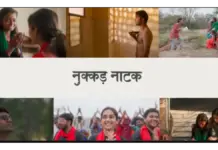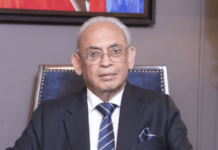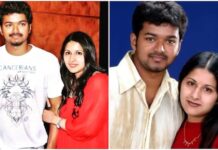Dharma Productions and UTV Motion Pictures’ Yeh Jawaani Hai Deewani (UA) is a love story of two people as different from one another as cheese from chalk. Kabir Thapar alias Bunny (Ranbir Kapoor) is a carefree young man raring to go. He likes adventure in his life and dreams of roaming the whole world. He wears his heart on his sleeve but doesn’t believe in the institution of marriage. He lives with his father (Farooque Shaikh) and stepmother (Tanvi Azmi). His best friends are Avi (Aditya Roy Kapur) and Aditi (Kalki Koechlin) who are as fun-loving as him. Aditi loves Avi who is probably not even aware of this. Avi is also romantic at heart and loves to chase girls. The three are due to undertake a trekking trip to Manali as part of a larger group. Naina Talwar (Deepika Padukone), a serious and studious girl who used to study in the same school and class as Bunny and who is now studying medicine, joins him, Aditi and Avi on the trip as she needs a break from her studies.
Slowly but surely, Bunny and Naina grow very fond of each other during the trip even though they have almost nothing in common. Naina learns to live life to the fullest in his company. Just as she is, one day, about to confess to Bunny that she has begun to love him, the three friends get to know that Bunny has got a scholarship to study journalism in a university in Chicago. Since Bunny is a detached kind of person who would do anything to roam the world, he seizes this opportunity and leaves for Chicago. He gets busy in his world – first with his studies, and then, with his job. He keeps in touch with Avi and Aditi but only when he gets time from his busy schedule.
After eight years, he comes to India to attend Aditi’s marriage with a rich man, Taran (Kunal Roy Kapur). He meets Naina again and the old sparks are re-ignited, this time not just from Naina’s side but also from Bunny’s side. However, Naina holds herself back because she knows, Bunny’s dreams would keep him on the move in different parts of the world always while she, a family person, has her parents and clinic (she is now a doctor) to look after.
Does Naina admit before Bunny that she loves him? Does Bunny also love Naina as much as she loves him? Does he agree to sacrifice his dreams for Naina? Or does Naina chuck away everything and go away with Bunny? Do Bunny and Naina, two diametrically opposite people, live happily together ever after?
Ayan Mukerji’s story is nice and the underlying philosophy of unlike poles attracting each other is brought out beautifully and sensitively. He has penned a screenplay which is fresh, youthful and lively. The camaraderie between the four friends is excellent and their jokes are so fresh that the audience feels completely entertained in the first hour of the more-than-two-and-a-half-hour drama. The pace drops a bit thereafter but the dip does not threaten the commercial viability of the film. The twist of Bunny’s scholarship again makes the drama exciting. The post-interval portion gains momentum when Aditi invites Bunny for her destination marriage in Udaipur. The fun and frolic of the wedding celebrations once again keep the viewers thoroughly entertained but alongside that, the romantic (between Bunny and Naina) and emotional (between Bunny and Naina; and between Bunny and Avi) scenes give the drama a new dimension. That there is no melodrama in this film about relationships might disturb some people but the youngsters will lap up this subtle drama more than willingly. The dropping pace of the drama at some places may also come in the way of the cent per cent enjoyment of the film but that would be so in the case of a section of the audience only. The rest will clearly understand that the scripting could not have made the pace faster without sacrificing the romance and emotions to some extent.
In particular, the film has the following brilliantly entertaining parts: the jokes which the friends crack while on their way to Manali and also while they are there; the character of Lara (Evelyn Sharma); the action sequence in Manali; three songs and their extraordinary choreography; the easy-going nature of Bunny; Bunny’s relationship with his father; the scenes of Naina’s mother (Dolly Ahluwalia); the gradual transformation of Naina from being the studious and guarded girl to becoming the fun-loving and lively lady; the slow revelation of the true character of Taran, fiancé of Aditi; the tension between Bunny and Avi when the former returns to India to attend Aditi’s wedding; the wedding celebrations; the emotional turmoil in the lives of Bunny and Naina; the scenes showing the friends wishing each other a happy New Year; and several others.
Dialogues, penned by Hussain Dalal, are veritable gems and greatly contribute to the entertainment and emotional quotient of the drama. The dialogue writer has beautifully aided story and screenplay writer Ayan Mukherji in keeping the script youthful and contemporary.
Ranbir Kapoor is a charmer par excellence. He looks fantastic, acts marvellously and dances splendidly to reach straight into the hearts of the audience. This is yet another award-winning performance from the new superstar. His innocent face and his mature acting are a deadly combination. Deepika Padukone acts wonderfully. Her character has so much range as Naina transforms from the introverted, serious and studious girl to the easy-going and fun loving yet evolved person. Deepika adds a lot of layers to the character of Naina, making it so very interesting. Hers is also an award-worthy performance. Aditya Roy Kapur is just too lovely and extremely natural. He lends excellent support. Kalki Koechlin springs the biggest surprise by delivering a memorable performance. She is first-rate. Kunal Roy Kapur is cute and endearing, besides being very natural. Dolly Ahluwalia (guest appearance) and Evelyn Sharma shine in their respective roles and entertain beautifully. Farooque Shaikh stands out in a brief role. Tanvi Azmi makes her presence felt in a guest appearance. Poorna Jagannathan (as Bunny’s colleague) and Naveen Kaushik (as the trek leader) provide formidable support. Madhuri Dixit sizzles in the ‘Ghaghra’ song with her oh so graceful dance. Rana Daggubati leaves a mark in a cameo appearance. A special word about casting director Nandini Shrikent: she deserves distinction marks for her very effective casting.
Ayan Mukerji’s direction is sensitive and mature. If the light scenes are extremely enjoyable, the serious ones have depth. A special mention must be made about his expertise at leaving things unexplained at one point and then offering an explanation to complete them later. This leads the audience up the wrong path of thinking for a while before the record is finally set right, which gives the viewers a nice feeling. Instances in point: Bunny’s absence at the time of his father’s death, and the reason being explained later; Avi’s frustration with Bunny, and the reason for the same being revealed later; projecting Taran as a loser in the initial part after his introduction, and the gradual revelation of his true self; the unfolding of the relationship Bunny shares with his dad; and several other scenes.
Pritam’s music is such a major asset of the film that it wouldn’t be incorrect to call him a hero of the film. ‘Balam pichkari’ and ‘Badtameez dil’ are already super-hit songs and their pictuisations (both by Remo D’souza) are mind-boggling. ‘Dilliwali girlfriend’ is a good song and its picturisation (by Ganesh Acharya) is okay. The ‘Ghaghra’ song is fast-paced and its picturisation (by Farah Khan) on Madhuri and Ranbir is superb. The ‘Kabira’ song grows on the audience as it comes at different points in the film. ‘Subhanallah’ and ‘Ilaahi’ songs are fair. Amitabh Bhattacharya’s lyrics for all the songs are excellent and the man deserves kudos for that. Pritam’s background music is of a very good standard. V. Manikandan’s cinematography is splendid. The film is visually very rich due to extraordinary camerawork and the rich sets (by Amrita Mahal Nakai and Rajnish Hedao). Akiv Ali’s editing is lovely. Production values are grand.
On the whole, Yeh Jawaani Hai Deewani has tremendous entertainment value because of its fine drama, enjoyable humour, great music, lovely star value and fantastic performances. It will have a meritorious run at the box-office and keep the exhibitors very happy. Business in the big cities will be outstanding while it will go on declining as the size of the city decreases. Similarly, business in the good multiplexes will be outstanding while it will be lesser in the lesser multiplexes and in the single-screen cinemas. Overall, it will prove to be a supremely rewarding film for Dharma Productions and a paying proposal for UTV, the all-India distributor. As for the few distributors who have acquired the film for individual circuits, from UTV, they’ve done so at unbelievably high prices, and they will, therefore, make only moderate profits despite the huge merits of the film.
Released on 31-5-’13 at Regal (daily 4 shows), Eros (daily 4 shows), New Excelsior (daily 4 shows) and other cinemas of Bombay by UTV Motion Pictures. Publicity: outstanding, brilliant. Opening: excellent. …….Also released all over. Opening was superb in the multiplexes and good in the single-screen cinemas, generally speaking.




























